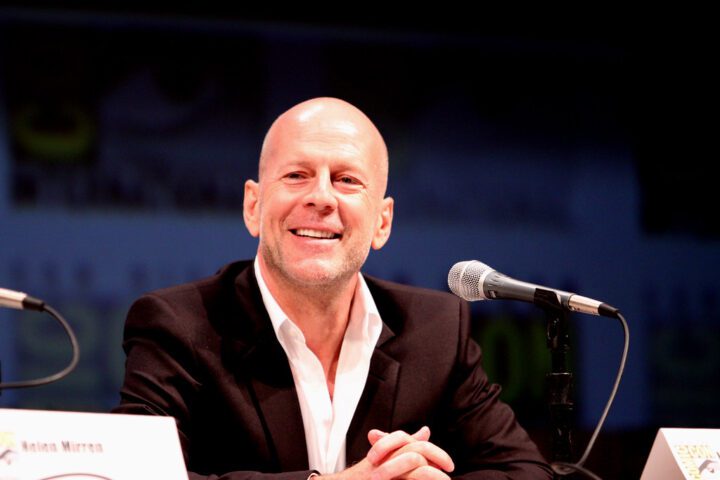When life throws a curveball, sometimes even rock stars have to pause the music. Brad Arnold, the voice behind 3 Doors Down hits like “Kryptonite” and “Here Without You,” recently shared some tough news that’s hitting fans hard.
The Diagnosis That Stopped the Show
On May 7, 2025, Arnold announced he’s been diagnosed with stage 4 clear cell renal cell carcinoma (ccRCC) that has spread to his lungs. This serious diagnosis forced the band to cancel their entire 2025 summer tour, including planned appearances with Creed and several festival dates.
“I’m not afraid,” Arnold told fans in his video message, pointing to his Christian faith as a source of strength. He even referenced the band’s 2008 hit “It’s Not My Time” as his personal anthem during this health battle.
Understanding ccRCC: The Science Behind the Diagnosis
Clear cell renal cell carcinoma is the most common type of kidney cancer, making up about 80% of all kidney cancer cases. Its name comes from how the cancer cells look clear or pale under a microscope due to lipid and glycogen content.
Kidney cancer accounts for 4-5% of all new cancer diagnoses in the United States. Between 2018 and 2022, the age-adjusted incidence rate was 17.5 per 100,000 people annually, according to SEER data.
The survival outlook varies dramatically by stage. Localized ccRCC has a 50-69% five-year survival rate, while metastatic disease (like Arnold’s) drops to approximately 10%.
Risk Factors: What Increases Your Chances
Several factors can raise your risk of developing kidney cancer:
Smoking contributes to about 25-30% of RCC cases, making quitting tobacco a key preventive measure. Obesity and high blood pressure are also major modifiable risk factors.
Some people have genetic predispositions. Inherited conditions like von Hippel-Lindau disease account for roughly 4% of RCC cases, making family history an important consideration.
Warning Signs: What to Watch For
Early kidney cancer often has no symptoms and gets discovered by accident during imaging for other conditions. When symptoms do appear, they may include:
- Blood in urine
- Pain in your side
- A lump you can feel
- Unexplained weight loss
- Fever
- Fatigue
There’s currently no standard screening program for the general population, so high-risk individuals benefit most from regular check-ups and imaging.
Similar Posts
Treatment Breakthroughs: Fighting Back
Medical science has made significant advances in treating ccRCC:
Surgery remains the first choice for localized disease, removing part or all of the affected kidney.
For advanced cases like Arnold’s, combination therapies show promise. Recent clinical trials like CLEAR have demonstrated that combining medications such as lenvatinib with pembrolizumab significantly improves progression-free survival compared to older treatments.
Dr. Toni K. Choueiri, Director of the Lank Center for Genitourinary Oncology at Dana-Farber, notes that “recent immunotherapy-targeted therapy combinations have reshaped the treatment landscape, turning metastatic ccRCC into a more chronic, manageable disease for many patients.”
The Man Behind the Mic
Before facing this health challenge, Arnold had already overcome other obstacles. He co-founded 3 Doors Down at just 16 years old in Escatawpa, Mississippi, and helped the band sell over 20 million albums worldwide.
January 2025 marked his ninth year of sobriety, a milestone he credits to his faith and lifestyle changes.
Beyond music, Arnold’s compassion shows through The Better Life Foundation, which the band established in 2003 to help children with life-threatening illnesses.
Community Support: Music Industry Stands Together
Fellow musicians have rallied around Arnold since his announcement. Artists like Scott Stapp, Chris Daughtry, and Jason Aldean have publicly offered prayers and encouragement, while fans have flooded social media with messages of support.
Taking Action: What You Can Do
Arnold’s diagnosis serves as an important reminder about kidney health. Consider these steps:
- Know your risk factors: Talk with your doctor about your family history and lifestyle factors that might increase your kidney cancer risk.
- Make healthy choices: Quit smoking, maintain a healthy weight, and control your blood pressure to reduce your risk
- Stay informed: Follow reliable sources like the National Cancer Institute and American Cancer Society for the latest on kidney cancer prevention and treatment.
- Support matters: Whether you’re facing cancer yourself or supporting someone who is, connect with resources like the National Kidney Foundation or patient support groups.
Looking forward, addressing the drivers of rising kidney cancer rates—obesity, hypertension, and smoking—through both personal choices and public health policies will be essential. Ensuring everyone has access to early detection and cutting-edge treatments remains equally important in reducing kidney cancer’s impact on future generations.
As fans await updates on Arnold’s treatment journey, his situation shines a light on a disease affecting thousands of Americans each year—and the resilience it takes to face it head-on.


















